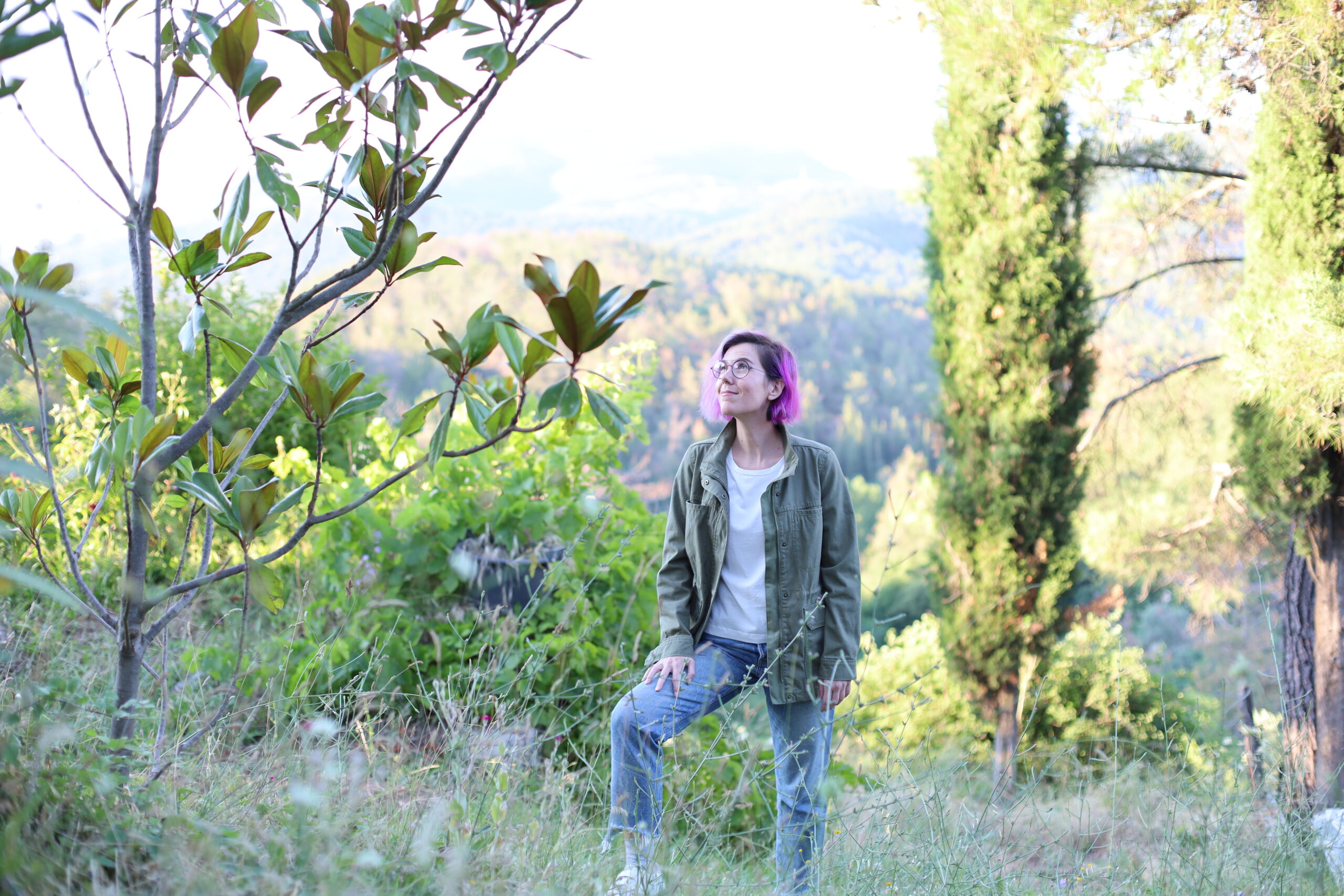Three questions with… Natascha!
Our lab is growing! In our Three Questions series, we’re profiling each of our members and the amazing work they’re doing.
Today’s post features Natascha Chtena, a postdoctoral fellow and research coordinator for the Value of Openness, Inclusion, Communication, and Engagement for Science in a Post-Pandemic World (VOICES) project at the ScholCommLab. In this post, she reflects on cultivating openness and equity in higher education, tackling conventional scholarly publishing, and more.

Q#1 What are you working on at the lab?
I am working with Juan Pablo Alperin and a team of international researchers on a Transatlantic Platform (T-AP) funded project that examines equity, inclusion and engagement in open science in light of the COVID-19 pandemic. What’s innovative about our project is that it considers open research and public science communication as interconnected along a continuum of access, instead of distinct areas with separate concerns, goals, and target audiences.
For a long time, the open movement in higher-ed (OA, open data, etc.) has placed too much emphasis on published outputs and not enough on how these outputs are communicated to and engaged with by the public. That’s not surprising given how deeply engraved the injunction to “publish or perish” is within the academic system, but I think the COVID-19 pandemic has provided a fertile opportunity for researchers to think about social responsibility and their role in promoting effective public engagement with science.
For those of us actively engaged with open access/source/etc. projects, it’s also given us an impetus to rethink what we really want openness to achieve and for whom. I’m a firm believer in the need to make scientific research not just open access, but also as accessible, inclusive and equitable as possible, and I’m incredibly lucky to be working with a team of like-minded colleagues, with whom I share both interests and an ethos.
Q#2 Tell us about a recent paper, presentation, or project you’re proud of.
I spent the last two years building up the HKS Misinformation Review, a diamond OA journal that publishes timely research on misinformation and on measures aimed at combating it. Our main goal with this project was to create a forum—the first of its kind— where researchers and practitioners from different fields would come together, exchange ideas, and effectively respond to the misinformation crisis.
We also wanted to tackle two long-standing issues of conventional scholarly publishing: (1) unnecessarily long review and publication times (which render much research outdated by the time of publication), and (2) barriers to access for non-scholarly audiences that extend beyond paywalls and poor findability. That’s why we developed a “fast-review” system, with a goal of moving from submission to publication within 1-2 months, along with an innovative, short-form article format that features the most important insights and implications upfront, so they are clearly visible to non-specialists.
I worked day and night to see the project through, and I’m so proud of what the journal has become and what we have accomplished over a very short period of time.
A highlight was when the Misinformation Review was featured on Last Week Tonight with John Oliver!
Q#3 What’s the best (or worst) piece of advice you’ve ever received?
I think advice is overrated, honestly, and so much of it is projection. Plus, nothing can replace the insights of lived experiences. Having said that, when I was training in rescue diving many moons ago, my instructor said: “Whatever happens, don’t panic.” That’s solid advice in any circumstance 🙂
Read more about Natascha on her website or find her on Twitter at @nataschachtena.

[…] that ‘openness’ doesn’t automatically lead to accessibility and inclusion,” says Natascha Chtena, a postdoctoral fellow at the ScholCommLab and research coordinator of VOICES. “I hope our work […]